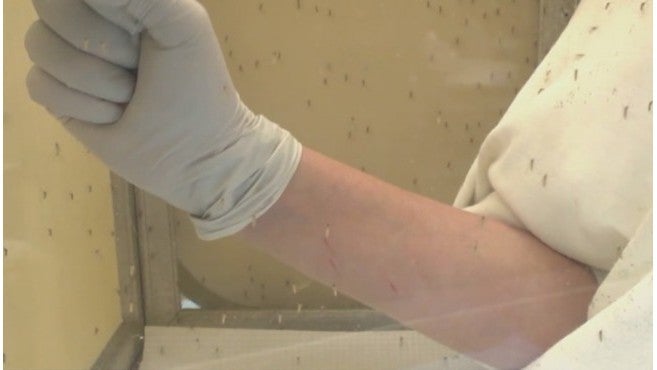How to protect yourself from mosquitoes with West Nile virus
LAFAYETTE, Ind. (WLFI) – Health officials are reporting mosquitoes are testing positive for West Nile virus in Elkhart and Carroll counties.
There have not been any reports of humans being affected by the virus, but officials want to warn people as the mosquito season progresses.
The Indiana Health Department said these positive results happen in almost every county in the state and they check from June until the end of October. Because fighting mosquitoes is sometimes unavoidable, the department said, checking the label on your repellent is key.
“When they (the health department) notice it, that’s a sign that it’s getting ready to spread into the human population,” said Tippecanoe County Health Department Administrator Craig Rich.
Rich said the department takes crews out to breeding sites to check for active mosquito larvae to identify what species they are.
“They’ll check with the health department to see where they have had trouble in the past, and then they’ll set up in locations.”
Purdue University professor emeritus Ralph Williams said this report is for inspectors to catch them before they spread.
“It’s more to get the health departments alerted that positive mosquito activity is occurring,” Williams said.
According to the state health department, anyone near stagnant water needs to make sure they have repellent on, and check the active ingredients inside to help avoid the West Nile Virus.
“The initial step for the West Nile virus control is to look for the actual types of mosquitoes that will transmit that disease,” Williams said.
Ingredients including DEET, picaridin, IR3535 and others are what is suggested to keep the mosquitoes away. Using “all natural” methods may not keep the disease from reaching the human skin.
“There’s a lot of concoctions out there, there’s a lot of stuff; however, EPA-registered insect repellant, which will be on the label, will have an EPA (U.S. Environmental Protection Agency) registration number are the ones that have been proven to be effective.”
The department recommends you flush the water out of places where it could be stagnant for a few days. Pool covers, gutters and flowerpots can also be a place for the water to collect.
